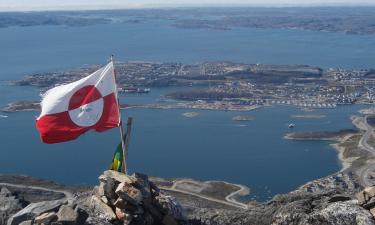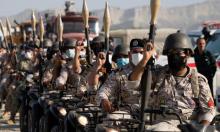American Troops in Korea
American troops have been present on the South Korean territory for half a century already. Americans entered the country in September 1945, after the end of WWII. Americans didn’t participate in the military operations; those were Russian troops that committed all battles of the short Korean campaign. However, in accordance with the agreement reached before the USSR started the war with Japan, Americans landed in the south of the country to accept surrender of Japanese troops. That was designed as a provisional measure; however, as it was already proved, provisional measures often turn out everlasting.
In 1945-1948, Soviet and American administrations did everything possible to put their candidate to power in the part of Korea which they occupied. Former partisan commander, Soviet Army Captain Kim Il Sung came to power in the north; and Professor Lee Syn Mang, who had spent almost thirty years in the USA, came to power in the south. The opposition between Korea’s south and north quite naturally resulted in a civil war. In June 1950 North Korean troops invaded South Korea, smashed the army of the Seoul government and occupied almost the whole of the Korean Peninsula within two months. Lee Syn Mang and his ministers escaped to Busan. By August 1950, American troops and remains of the South Korean army hardly held a tiny base around the city, which made up less than 5% of the whole of the Korean territory.
Intervention of the USA helped change the course of the war; in November 1950, North Korea had to appeal to China, its ally, for help. The latter joined the war, which resulted in a tie. The cease-fire line determined in 1953 approximately corresponds the pre-war line of demarcation.
When the war was over, American troops still remained in the country for two reasons. First, the South Korean government itself insisted that American presence should be kept in the country, as it remembered the sad lessons taught in summer of 1950 and feared that North Korea might easily beat the south in case of war. Second, the USA was also interested in its presence in South Korea, which became the main and the only (after it lost China in 1949) base in the continental Central Asia. It could be a really very important front base in case of a war with the USSR or China. As a result, an agreement on mutual defense was signed in 1954, which in fact consolidated American-Korean military union.
Within the subsequent 45 years, the status of American troops in Korea was several times reviewed; their strength and organization changed several times as well. In the mid-1970s, after the failures in Vietnam, majority of Americans strongly objected to presence of the troops abroad; at that very period, withdrawal of American troops from Korea was seriously discussed. Official Seoul strongly objected to a possible withdrawal, and American troops stayed on the peninsula.
Neither Korea, nor America make a secret of the target of the powerful US group: North Korea is a potential enemy. However, North Korean military men don’t conceal at all that their main objective is to be ready for a war with the south, for the second stage of a civil war which wasn’t brought to an end in 1953.
On the whole, American troops in South Korea make up 35.700 servicemen; about 4.000 civilians are also working at the American bases in South Korea. If members of their families are also counted, the total number of the US personnel in Korea is to make up 55 thousand people, which is by the way a very unstable group. Majority of American military men don’t stay in Korea for long; after just several months or a couple of years at most, they leave for a new duty station.
Presence of American troops in South Korea is connected with considerable spending, majority of which is covered by the Korean side. In accordance with a financial agreement concluded at the end of 1998 (which was concluded for a three-year period), Korea must pay 333 million dollars as a compensation of the spending on maintenance of the US troops.
Attitude of the local press and the public opinion on the whole to presence of the US troops in the country is rather ambivalent. On the one hand, there are just few people who seriously want Americans to leave Korea. The “Yankee Go Home!” appeals are shouted at student demonstrations mostly; but majority of the population and practically the whole of the Korean ruling clique say that US troops must stay in the country. However, sound geopolitical reasons don’t rule emotions out. Presence of foreign troops on the native land actually causes at least slightest irritation. In the course of time, attitude of the Korean public opinion to presence of the US troops on the Korean territory is growing more critical. Americans still remain survivors for the older generation, who remember the war. Even those southerners who sympathized with communists before 1950, changed their attitude to the north after several months of occupation. Coming of American troops became a rescue for them. However, decades passed since that time; new generations grew up who consider today’s prosperity, cars flooding the streets and streets lit with neon advertising, to be quite a natural state. Increase of the life rate meant also increase of the national self-confidence and different nationalist attitudes. Even Americans themselves take this process rather painfully. We, Russians, are a neutral party and mustn’t exaggerate the degree of this anti-Americanism. Even today it still remains superficial and practically doesn’t touch the authorities which decide whether thne US troops must remain of leave Korea. So, it’s highly likely that Americans will remain there for a good long time.
Andrey Lankov Seoul Vestnik newspaper
Translated by Maria Gousseva
Read the original in Russian: https://www.pravda.ru/world/8651-usa/
Related links:
Subscribe to Pravda.Ru Telegram channel, Facebook, RSS!





